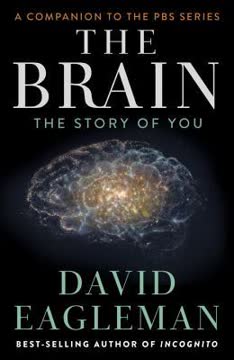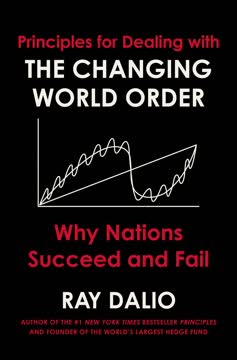Key Takeaways
1. Concussions and TBIs: A Silent Epidemic Demanding a New Approach
I believe the rising problem of traumatic brain injuries isn’t being approached correctly, which is why it’s time to go back to the drawing board.
Millions affected. Traumatic brain injuries (TBIs), including concussions, are a widespread and growing problem, with millions of cases occurring each year. Many go undiagnosed or are dismissed as "just a hit to the head," leading to long-term consequences. The traditional "wait and rest" medical model often falls short, leaving individuals with persistent symptoms and a diminished quality of life.
BRIGHT MINDS. A comprehensive approach is needed, considering factors beyond the immediate physical damage. The BRIGHT MINDS mnemonic serves as a reminder to address key components:
- Blood flow
- Retirement/aging
- Inflammation
- Genetics
- Head trauma
- Toxins
- Mental health
- Immunity/Infections
- Neurohormone deficiencies
- Diabesity
- Sleep
Hope for recovery. Even years after a TBI, significant improvements in brain function are possible with the right interventions. Natural treatments, which act on multiple pathways simultaneously, offer a promising avenue for healing. By addressing the underlying causes and providing the brain with the resources it needs, individuals can reclaim their lives and overcome the limitations imposed by TBI.
2. Accurate Assessment: The Cornerstone of Effective TBI Treatment
Even the most effective treatment won’t work if it’s targeting the wrong problem.
Beyond standard tests. A thorough assessment is crucial for identifying the specific issues contributing to TBI symptoms. Standard CT scans and MRIs often miss subtle damage, highlighting the need for more comprehensive evaluations. A good brain injury assessment includes:
- Thorough history
- Cognitive testing
- Imaging (SPECT scans)
SPECT scans. SPECT (single photon emission computed tomography) scans can reveal areas of decreased blood flow and activity, providing valuable insights into brain function. This functional imaging can detect damage that structural scans miss.
Brain reserve. Brain reserve, or cognitive reserve, refers to the brain's resilience to damage. Factors like diet, education, and lifestyle influence brain reserve. Improving brain reserve through healthy habits can enhance recovery from TBI and reduce the risk of long-term cognitive decline.
3. Lab Tests: Unveiling Hidden Deficiencies and Inflammation
If you have hit your head, been told nothing is wrong and you’re going to be fine, yet still have persistent symptoms that last more than several months, this would be a great time to have a panel done.
Beyond symptoms. Lab tests can identify underlying deficiencies and imbalances that contribute to TBI symptoms. These tests provide objective data to guide treatment and optimize brain function. Key lab tests include:
- Lipid panel
- Metabolic panel
- Complete blood count (CBC)
- B12
- Zinc
- Copper
- Vitamin D
- Ferritin
- HSCRP
- Homocysteine
Nutrient deficiencies. Addressing nutrient deficiencies can significantly improve brain function and overall health. For example, low zinc levels can impair dopamine production, affecting focus and mood. Optimal vitamin D levels are crucial for cognitive function and mood regulation.
Inflammation markers. Measuring inflammatory markers like HSCRP can help identify systemic inflammation that may be affecting the brain. Addressing inflammation through diet and supplements can improve TBI symptoms and promote healing.
4. Hormone Balance: The Unsung Hero of Brain Injury Recovery
Some of the worst symptoms of brain injury can be traced back to hormone imbalances.
Pituitary gland. The pituitary gland, often damaged in head injuries, regulates hormone production. Hormonal deficiencies can mimic or exacerbate TBI symptoms, including fatigue, depression, and cognitive difficulties. Testing and correcting hormonal imbalances is a cornerstone of TBI treatment.
Key hormones. Important hormones to assess include:
- Testosterone
- Estrogen
- Progesterone
- Human growth hormone (HGH)
- Cortisol
Hormone optimization. Restoring hormone levels to optimal ranges can significantly improve TBI symptoms and quality of life. Natural treatments and hormone replacement therapy, under medical supervision, can help achieve hormone balance.
5. Immediate Action: First Aid for Your Brain
Now that we know that brain injury isn’t a single problem but a complex series of events and behaviors that varies among individuals—and that many of the single-mechanism drug treatments can be harmful or even deadly—we should take a different approach.
Time is critical. Acting quickly after a TBI can minimize damage and improve outcomes. A "TBI first aid kit" containing targeted nutrients can help reduce inflammation and cell death. This kit should include:
- N-acetyl cysteine (NAC)
- Curcumin
- Vitamin C
- Vitamin D
- MCT oil powder
- Flavored BCAA powder
Nutrient power. These nutrients have broad mechanisms of action, are nontoxic, and work synergistically to support brain healing. They help quench inflammation, provide energy, and protect brain cells from damage.
Beyond supplements. In addition to nutrients, a TBI first aid plan should include rest, appropriate exercise, and a brain-healthy diet. These steps can make a significant difference in the recovery process.
6. Natural Treatments: Healing Chronic Traumatic Brain Injury
The goal is to treat the person—not her brain scan, or her lab value.
Ongoing support. Even months or years after a TBI, natural treatments can help alleviate chronic symptoms and improve brain function. These treatments focus on addressing underlying deficiencies, reducing inflammation, and supporting brain health.
Key nutrients. Important nutrients for chronic TBI include:
- Omega-3 fatty acids (EPA/DHA)
- Pregnenolone
- Progesterone
- Vitamin E
- Acetyl-L-carnitine
- Alpha-lipoic acid
- L-Glutamine
Individualized approach. The best treatment plan is tailored to the individual's specific needs and symptoms. Working with a knowledgeable healthcare provider is essential for developing an effective and safe treatment strategy.
7. Nutrition: Fueling Your Brain's Recovery
I believe a modified version of the ketogenic diet is likely the most powerful, effective diet method for healing brain injury.
Ketogenic diet. A modified ketogenic diet, low in carbohydrates and high in healthy fats, can provide an alternative fuel source for the brain and promote healing. Ketone bodies, produced from fat, have neuroprotective effects and can improve brain function.
Modified approach. The modified ketogenic diet allows for more protein and vegetables than the traditional version, making it more sustainable and nutritionally balanced. It emphasizes healthy fats from sources like avocados, coconut oil, and olive oil.
Dietary changes. Gradual dietary changes are more sustainable than drastic overhauls. Start by cutting out sugar, eating protein at every meal, and adding vegetables to your diet. Gradually reduce carbohydrate intake and increase healthy fats.
8. Structural Integrity: Aligning Body and Brain for Optimal Function
Correcting the structural integrity of your body and brain is a key for healing from a TBI.
Physical alignment. Structural imbalances in the body, particularly in the upper cervical spine, can impair brain function and contribute to TBI symptoms. Correcting these imbalances can improve blood flow, cerebrospinal fluid flow, and nerve function.
Treatment options. Several physical medicine techniques can help restore structural integrity:
- Functional neurology
- Upper cervical chiropractic
- Craniosacral therapy
- Neurocranial restructuring
Holistic approach. Correcting structural integrity is most effective when combined with other TBI treatments, such as nutrient optimization and brain training. A holistic approach addresses the multiple factors contributing to TBI symptoms.
9. Brain Training: Sharpening Focus and Cognitive Abilities
Meditation is simply paying attention to your thoughts.
Prefrontal cortex. The prefrontal cortex, often damaged in TBI, is crucial for attention, decision-making, and impulse control. Brain training exercises can strengthen the prefrontal cortex and improve these cognitive functions.
Meditation. Meditation, a simple yet powerful brain training technique, improves focus, reduces stress, and enhances emotional regulation. Mindfulness meditation involves paying attention to the present moment without judgment.
High-tech options. Neurofeedback and brain games offer more sophisticated ways to train the brain. Neurofeedback uses real-time feedback to help individuals regulate their brainwave activity. Brain games target specific cognitive skills, such as memory and attention.
10. Sleep: The Foundation for Brain Healing
It is almost impossible to fully heal from a brain injury if sleep is chronically disrupted.
Sleep disruption. Sleep problems are common after TBI, hindering the brain's ability to heal. Insomnia, sleep apnea, and circadian rhythm disturbances can all disrupt sleep quality and quantity.
Sleep hygiene. Improving sleep hygiene is essential for TBI recovery. This includes creating a dark, quiet, and cool sleep environment, establishing a regular sleep schedule, and avoiding screens before bed.
Natural aids. Melatonin and magnesium are natural sleep aids that can improve sleep quality and promote relaxation. In some cases, prescription sleep medications may be necessary, but they should be used with caution and under medical supervision.
Last updated:
Review Summary
Concussion Rescue receives mostly positive reviews, with readers praising its practical advice on treating traumatic brain injuries. Many appreciate the holistic approach, including diet, supplements, and alternative therapies. Some find it particularly helpful for parents of athletes. Criticisms include its focus on Amen Clinic protocols and lack of comprehensive scientific explanations. Readers value the first-aid kit suggestions and immediate post-injury recommendations. While some information may be familiar to those well-versed in TBI research, many find the book a valuable resource for understanding and managing concussions.
Similar Books










Download PDF
Download EPUB
.epub digital book format is ideal for reading ebooks on phones, tablets, and e-readers.




